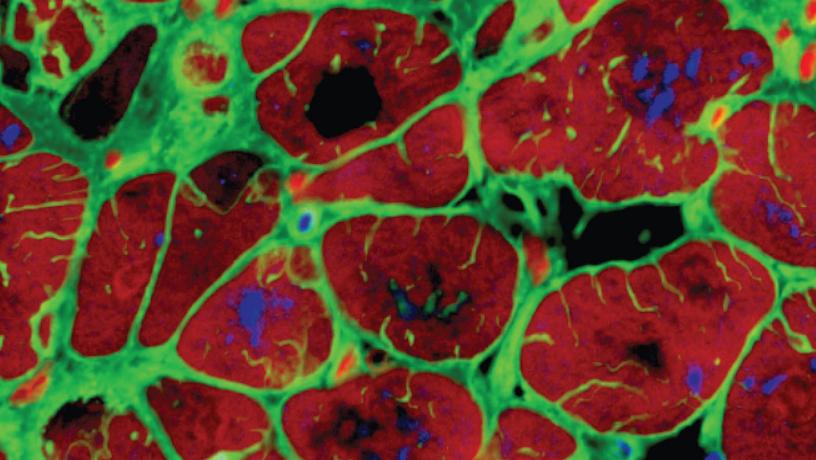One Biomedical Engineering Lab, Four Startups and Counting
Tara Biosystems has created a novel organ-on-a-chip platform using a new technique for engineering adult heart muscle created in Columbia Engineering's Lab for Stem Cells and Tissue Engineering.
Innovations lucky enough to be born at Columbia Engineering often have only one way to go: up. Situated in the world’s second-largest startup market and supported by a dedicated tech transfer team and a network of five business accelerators, more Columbia Engineering faculty and students than ever are transferring their skills beyond the lab.
One of the latest to make the leap is TARA Biosystems (TARA), a company offering physiologically relevant human “heart-on-a-chip” tissue models for cardiac risk assessment and drug discovery applications. Their newly licensed technology was developed at Columbia Engineering in the Laboratory for Stem Cells and Tissue Engineering headed by Gordana Vunjak-Novakovic, an early pioneer and global expert in engineering functional human tissues for regenerative medicine. In fact, Vunjak-Novakovic is one of the most highly cited engineers overall, having published more than 390 journal articles garnering over 42,500 citations.
TARA, which she co-founded with her former postdoc Milica Radisic—now a professor at the University of Toronto—is just one of four companies to spin out of Vunjak-Novakovic’s lab since 2008. In this instance, Radisic’s research led to a patented platform called Biowire II, which underlies TARA’s novel solutions for cardiac risk assessment and drug discovery applications. Last week, TARA licensed a second innovation developed in Vunjak-Novakovic’s lab—a new method for engineering adult-like human heart muscle spearheaded by postdoc Kacey Ronaldson-Bouchard. It’s the mix of engineering talent and entrepreneurial skills her students bring to the table that’s helped translate so many great ideas into practical startups, she says.
“I have great confidence in the TARA team and their ability to deliver on the promise of our intellectual property,” said Vunjak-Novakovic, University Professor, The Mikati Foundation Professor of Biomedical Engineering, as well as professor of medicine at Columbia University Vagelos College of Physicians and Surgeons. “We are inspired by the same mission to help improve the lives of patients and their families through safer and more effective therapies.”
In total, Columbia Engineering has produced 31 startups over the past four years, a new record. The School plays a key role in the strong startup culture across campus, where Columbia Technology Ventures (CTV) evaluates more than 350 faculty-submitted innovations each year, a process that may result in a patent, licensing agreement, or an invitation to join an accelerator. CTV handled the licensing agreement that’s bringing Vunjak-Novakovic’s technology to market at a particularly auspicious moment: New York City now outpaces Silicon Valley in venture capital growth, and a technology startup sector that began with a trickle a decade ago has become an ever-rising tide.
“We are very pleased to enter into this exclusive license with TARA, which has been a core part of the rapidly growing NYC life sciences startup ecosystem,” said Orin Herskowitz, CTV’s executive director. “We are excited to be a part of TARA’s current and future success.”
For her part, Vunjak-Novakovic credits University support for enabling success across her several startups.
“Columbia has repeatedly stepped in and held our hands—everything from working with us to protect our IP, to introducing us to business development experts and teaching us how to talk to investors,” she said. Now Epibone, Vunjak-Novakovic’s first company, just received FDA clearance to proceed with its Phase 1/2 clinical trial of jaw bone segments grown using patients’ own stem cells. Two other early-stage companies, Xylyx and Immplacate, are progressing quickly, due largely to the skill and dedication of their leadership teams, which Vunjak-Novakovic emphasizes are an “all in the family” affair—each of her companies are led by former students who spent years developing these technologies. “It’s more than a job,” she remarked. “It’s a personal investment.”

The Lab for Stem Cells and Tissue Engineering recently licensed a breakthrough technique for engineering mature heart tissue here, shown here.
